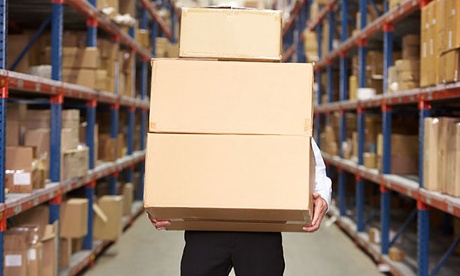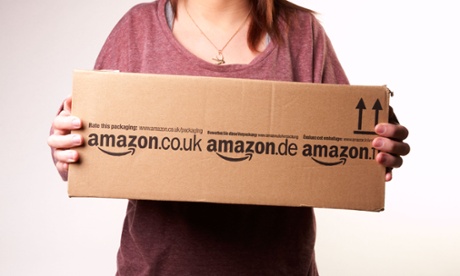If you’ve ever tried sheepishly to get an Asos bag or Amazon box from office postroom to desk, you will be aware how borderline transgressive it feels. Some companies, overwhelmed with their employees’ online-shopping deliveries, have banned them. This week, the Times reported that several big banks, including HSBC, Citigroup and JP Morgan, have banned personal deliveries. Lots of other organisations, including universities and government departments, have done the same in the past few years.
“There’s no doubt that the rise in internet shopping has changed the face of mailrooms,” says James Gilding, managing director of the document-management arm of Mitie, which runs outsourced mailrooms. Obvious personal items now account for between 30% and 40% of all incoming post. “Overall, we’re seeing an increase of around 20% on the previous year.”
This will only increase. This year in the UK, we are predicted to spend more than £50bn online. By 2023, research for Royal Mail estimates, 2.3bn parcels will be sent every year. And a large proportion are sent to people’s workplaces.
A number of other options are springing up, such as lockers in shops and petrol stations run by the likes of Amazon and InPost, and CollectPlus, which allows you to have items delivered to newsagents, shops and supermarkets in its network. Another company, Doddle, has opened collection points in or near train stations, so commuters can pop in on their way home.
Richard Wilding, professor of supply-chain strategy at Cranfield School of Management, would like to see drive-through collection points with numberplate-recognition technology. Having parcels delivered to work, he predicts, will become more difficult. “Many organisations now are starting to recognise the true cost of having to manage the reception of those deliveries.”
One company in Canary Wharf, he says, “was charging people £11 if [they] wanted anything delivered to reception. You have to take into account the cost of processing these deliveries”. A few years ago, when there were only a few deliveries, it wasn’t an issue; now, some companies are receiving hundreds of parcels a week. “Those have to be processed by the people within the organisation. That becomes more or less a full-time job. Then you’ve got a situation where your employer is funding your parcel-receiving. You’ve got the issue of security, and moving the item to that person. Immediately, you can see this is not a trivial thing.”
You might think that, because you have to spend all day at work, rather than waiting in for a courier – and, perhaps, because your boss is squeezing extra hours out of you – taking in the spoils of your retail therapy is a small perk. Could banning deliveries actually be counterproductive? “There is an impressively strong link between workers’ happiness and their productivity,” says Andrew Oswald, professor of economics at Warwick University and an expert on the economics of happiness. “Having cheery workers really does seem to have a payoff for the employer. Giving workers small freedoms makes a big difference to job satisfaction. Yet, small freedoms are inexpensive to offer, and I would have thought this one, about parcels, is a prime example.”











